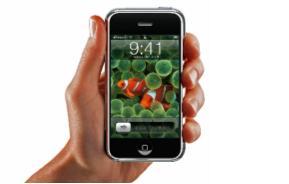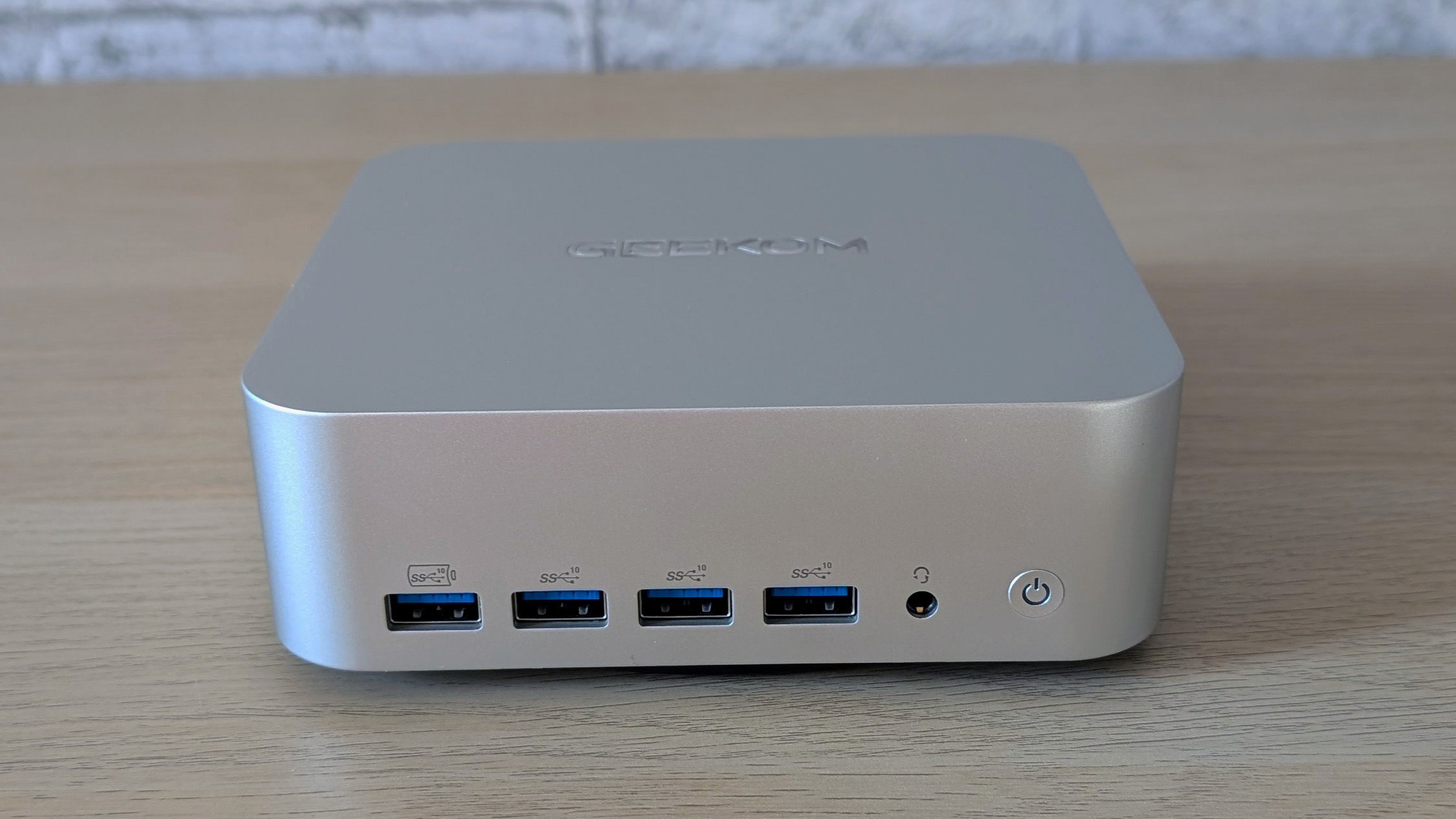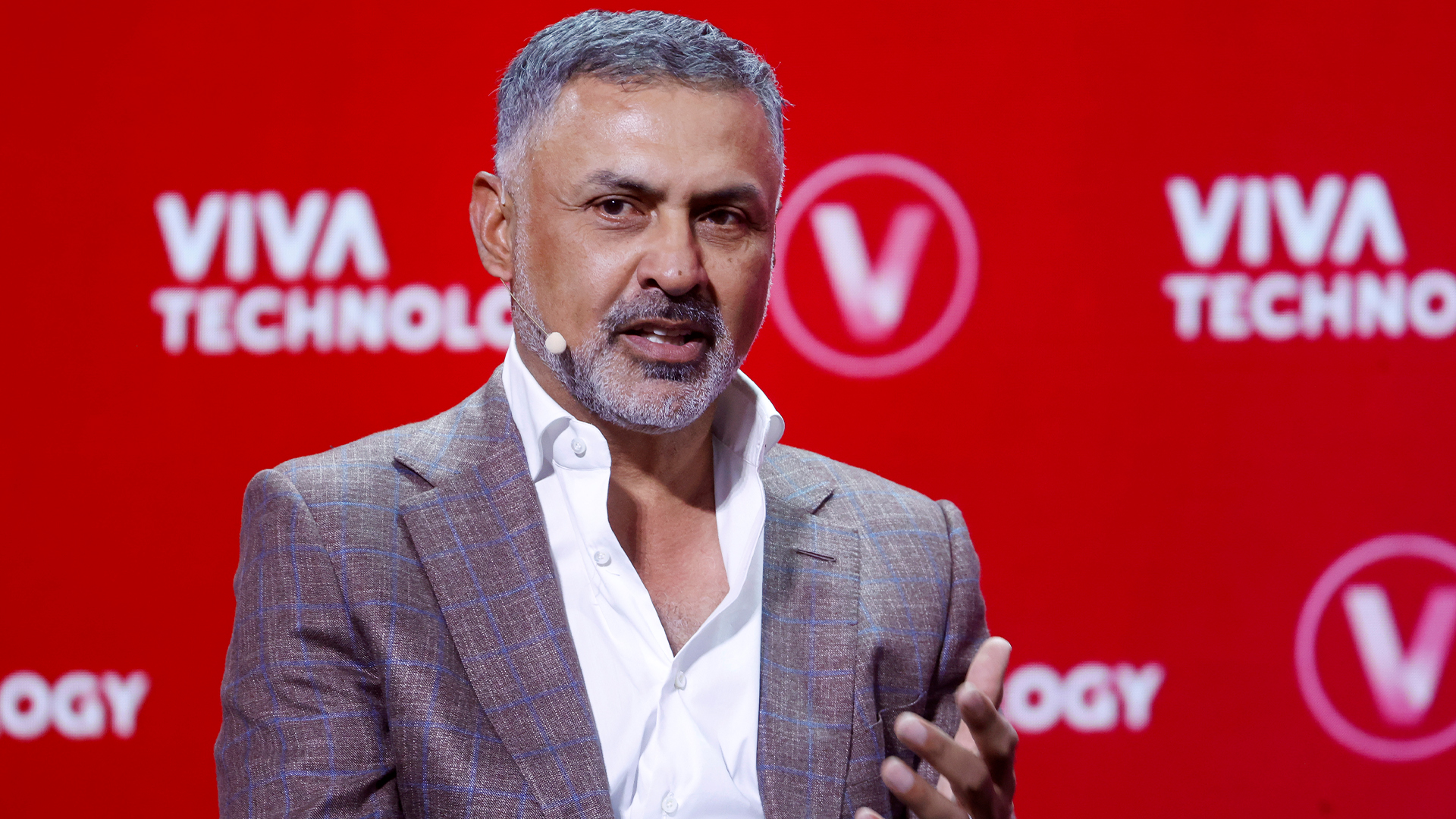Apple takes the wraps off its 'magical' iPhone
Apple has finally shown the world what its iPhone looks like and how it works, as well as giving its age-old name a bit of a makeover


Sign up today and you will receive a free copy of our Future Focus 2025 report - the leading guidance on AI, cybersecurity and other IT challenges as per 700+ senior executives
You are now subscribed
Your newsletter sign-up was successful
Apple's chief executive Steve Jobs today put an end to rumour and speculation about when the company would make a play for a slice of the mobile phone market by showcasing its iPhone at the Macworld Conference and Expo in San Francisco.
In parallel with the unveiling, in a surprise announcement, the company also demonstrated its commitment to diversifying into other markets by confirming that it has dropped the word computer from its moniker and will from now on be known as Apple Inc.
But users hoping to get their hands' on the new quad-band GSM phone, which also supports EDGE, 802.11b/g, Wi-Fi and Bluetooth 2.0 EDR wireless technologies, anytime soon will be disappointed as it won't be available in the UK until the fourth quarter of this year.
The US will benefit from an appearance by the iPhone in June through an exclusive partnership with carrier Cingular, while fans in Asia will have to wait until 2008.
"iPhone is a revolutionary and magical product that is literally five years' ahead of any other mobile phone," said Jobs during his keynote speech.
"We are all born with the ultimate pointing device - our fingers - and iPhone uses them to create the most revolutionary user interface since the mouse...The iPod changed everything in 2001. We're going to do it again with the iPhone in 2007."
The iPhone essentially incorporates phone functionality with a widescreen touch-control iPod and email, web and mapping capabilities.
Sign up today and you will receive a free copy of our Future Focus 2025 report - the leading guidance on AI, cybersecurity and other IT challenges as per 700+ senior executives
Advanced sensory technology, in the form of a built-in accelerometer, is intelligent enough to detect whether a user is holding the device in landscape or portrait position and can alter the display so that the content is viewed in the correct ratio.
The phone, which is just 11.6mm thick with a 3.5 inch, 320x480 pixel resolution touch-control screen, also knows when it has been placed near a user's ear and automatically switches its display off to save power.
Apple has used multi-touch interface technology to ensure that the phone's controls aren't over sensitive.
"It's far more accurate than any touch display ever shipped," said Jobs.
"It ignores unintended touches. It's super-smart."
Many of the phone's other features will also prove a coo for business users.
The device's rich HTML email client means that users can still access their POP3 or IMAP email messages while on the move, in addition to accessing the net using the Safari browser, while a calendar application ensures that users' schedule data is synched with their desktop.
The iPhone also comes bundled with Google Maps.
However, in contrast with the bumper features set, the operational performance of five hours' talk time or 16 hours audio playback - which is poor compared with many models already on the market - might be a bit of a letdown.
Nonetheless, Apple is hoping that its latest invention will be a hit and has set itself the ambitious target of shifting 10 million devices by 2008.
Experts are confident it will do so.
The device is "the most anticipated telephone since Alexander Graham Bell's original," according to JupiterResearch analyst Michael Gartenberg.
"The phone market is dynamic and we're at a point in time where the technology is finally available that can make something like the iPhone viable," he said in his blog.
"This product could not have been done two years ago and come to market the way that it has. Yes, I know other devices can do a lot of what the iPhone can do but that's like saying there's a lot of other music players out there as well.
"No, I don't think everyone is going to want to make the move to the iPhone, but enough people will that it will be a success. And like the iPod, don't think that Apple is going to stop with one model in this line. This game just a whole lot more interesting and will only continue to do so over time."
Pricing for the latest addition to the Apple family comes in at $499 for a 4GB model and $599 for an 8GB version.
During Jobs' lengthy keynote, Apple's leader also talked about the success of iTunes and showcased another new product, this time focused on digital entertainment in the living room.
More than two billion songs, 50 million television episodes and over 1.3 million feature-length films have been purchased and downloaded from the iTunes Store since its birth, meaning it's now the world's most popular online music, TV and movie store.
To help users access and manage their audio and video content, Apple has created Apple TV, which enables users to view and listen to their files using their widescreen televisions and an Apple remote control.
"Apple TV is like a DVD player for the 21st century - you connect it to your entertainment system just like a DVD player, but it plays digital content you get from the internet rather than DVDs you get from a physical store," said Jobs.
"Apple TV plays the same iTunes content that users enjoy on their computers and iPods, so now they can even watch part of a movie in their living room, and watch the rest later on their iPod."
Maggie has been a journalist since 1999, starting her career as an editorial assistant on then-weekly magazine Computing, before working her way up to senior reporter level. In 2006, just weeks before ITPro was launched, Maggie joined Dennis Publishing as a reporter. Having worked her way up to editor of ITPro, she was appointed group editor of CloudPro and ITPro in April 2012. She became the editorial director and took responsibility for ChannelPro, in 2016.
Her areas of particular interest, aside from cloud, include management and C-level issues, the business value of technology, green and environmental issues and careers to name but a few.
-
 Geekom A7 Max Review
Geekom A7 Max ReviewReviews The A7 Max is another impressive AMD Mini PC from Geekom, but you'll need to add a second stick of RAM to unleash its full performance potential
-
 Palo Alto Networks CEO hails ‘the end of identity silos’ as firm closes CyberArk acquisition
Palo Alto Networks CEO hails ‘the end of identity silos’ as firm closes CyberArk acquisitionNews Palo Alto Networks' CEO Nikesh Arora says the $25bn CyberArk acquisition heralds "the end of identity silos" for customers, enabling them to supercharge privileged access management.
